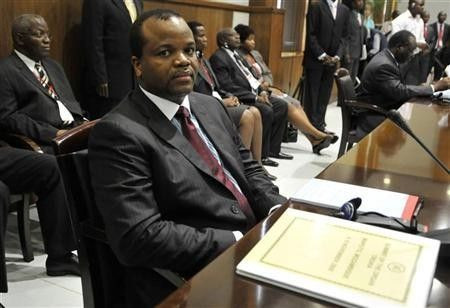Swaziland Cleric Calls for Establishment of Democracy

Could the sentiments behind the ‘Arab Spring’ have spread all the way into southernmost Africa?
The top Anglican cleric of Swaziland -- a small landlocked kingdom completely surrounded by South Africa -- has called for the king to give up power and establish a democracy.
Archbishop Meshack Mabuza told BBC that Swaziland's King Mswati III rules over a government that is outdated and has sunk the kingdom of 1.2 million people into an economic crisis.
The answer really lies in regime change in terms of the traditional, feudalistic, archaic form of government, Mabuza said.
It has to be replaced with multi-party democratic rule.
For example, due to a shortage of cash, the government has reportedly warned that payments to state workers will be delayed this month. Of greater concern, there are fears that a shortage of cash may result in state hospitals running out of anti-retroviral drugs (ARVs) -- Swaziland has one of the world’s highest rates of HIV/AIDS.
BBC reported that about 230,000 people in Swaziland -- almost one-fifth of the population -- are HIV-positive. Of that total, 65,000 depend on state hospitals to give them free drugs.
Mswati, who is the only remaining absolute monarch in sub-Saharan Africa, has an incredibly lavish lifestyle -- featuring thirteen wives and excessive spending on luxuries, He has been in power since 1986 and doesn’t allow the formation of any political parties, although he permits a parliament to exist.
But even the king has acknowledged the extent of the financial crisis -- earlier this year he cancelled plans to celebrate his silver jubilee.
However, despite the desperate need for money, Mswati has so far rejected a $355 million loan from South Africa because Pretoria demanded economic and political reforms in the kingdom (somewhat analogous to demands made by the European Union of peripheral Eurozone countries like Greece).
Swaziland officials have blamed the global economic crisis, as well as a dramatic drop in income received from the Southern African Customs Union, for the tiny kingdom’s financial problems.
The economic constraints were here even before the global economic meltdown because there has hardly been any economic growth, Mabuza added.
The country has really reached the point of collapse.
Two-thirds of the country lives in poverty. Although a small anti-government democracy movement exists – including trade unions and civil organizations -- it has made little headway. The king is also viewed as a kind of authoritarian cult figure
People do understand that things are not right but they fear a backlash if they speak out. They are worried that if they are seen to be making a stand then they will have to answer to the traditional authority, Sibongile Dlamini, a programs officer with the Swaziland Council of Churches (SCC), told the BBC.
I think as civil society, we need to go back to the drawing board and work out how to engage people because we need everybody to come together to make the government realize we need change.
© Copyright IBTimes 2024. All rights reserved.





















